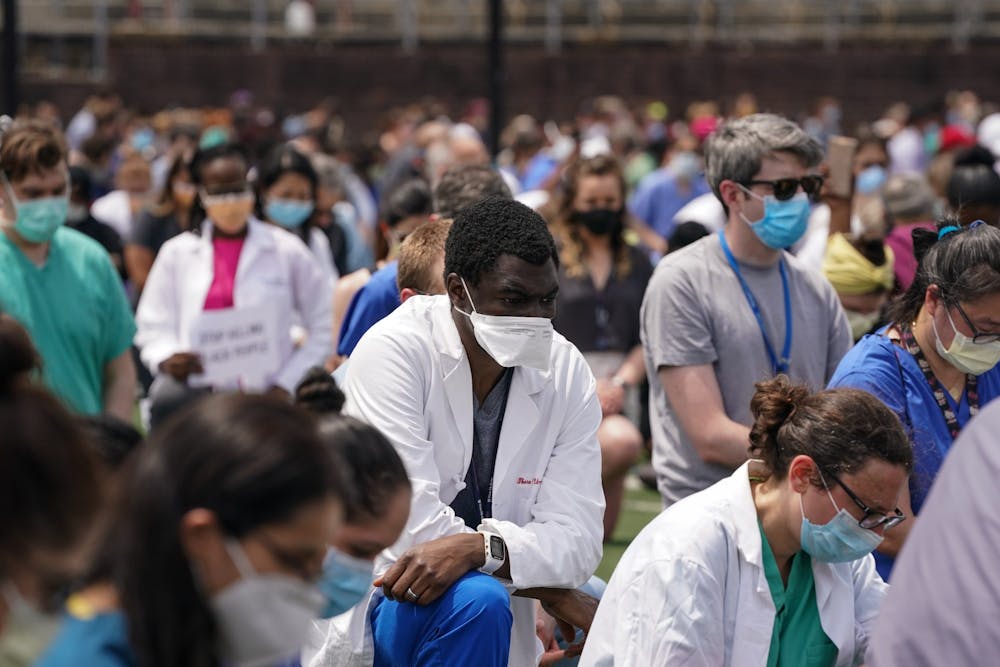Eight Penn healthcare researchers created a new initiative, Bold Solutions: Dismantle Racism. Advance Health., in order to combat racism within the U.S. health system.
The researchers, who come from schools and centers across Penn, aim to provide solutions to racism in healthcare and advance antiracist health care delivery models. The initiative was created in response to police brutality against Black people as well as the COVID–19 pandemic's disproportionate effect on the Black community, Eugenia South, Bold Solutions researcher and director of the Penn Urban Health Lab, said.
Penn's Leonard Davis Institute of Health Economics, which conducts research about health policy, is funding a program of pilot grants to start Bold Solution's first research projects. Bold Solutions plans to partner with Black faculty, students, and businesses to investigate issues such as financial health, payment models, and economic opportunity.
Raina Merchant, director of the Penn Medicine Center for Digital Health and an organizer for Bold Solutions, said that each member of the group brings different skills to the initiative. She said that the researchers plan to use their backgrounds in science as they search for solutions.
“We want to take the tools in our existing toolbox and say, ‘How do we apply these to addressing this enormous problem of racism and inequity?'" Merchant said. "The way that we want to do that would be by speaking to our strengths, and that is to use science.”
Bold Solutions hopes to move the conversation around dismantling racism towards healthcare. South said that the COVID–19 pandemic is only the latest example of a healthcare disparity between treatment for Black and white patients.
The initiative will address three forms of racism within healthcare: institutional, structural, and interpersonal racism. South said that addressing institutional racism means thinking about the ways in which institutions are set up and how they contribute to issues of inequity, such as how medicine is taught.
“There is still a notion out there that race is a biologic construct and that there are biologic differences between Black people and white people,” South said. “We learn that Black people are at higher risk for hypertension, whereas the truth of the matter is that it is exposure to racism that Black people face over time that has created the circumstances and situation that make Black people have higher rates of hypertension.”
RELATED:
Wharton graduates, dean discuss combating racism in first ‘Beyond Business’ lecture
Mental health initiative AfroWellness aims to support African international students
Structural racism involves examining issues such as who has access to certain levels of care. Interpersonal racism occurs during singular interactions that take place in a healthcare setting between providers, doctors, patients, and others, Merchant said.
Bold Solutions is currently in its early stages, and the researchers are still in the process of determining which issues they will investigate. The group is asking the Penn community to submit proposals by Nov. 9 for projects it could undertake related to health care and racism.
South said that while she believes society's recent interest in antiracism will fade, she hopes Bold Solutions' projects will challenge the Penn community to continue to address inequities.
"Though the initiative is in its infancy, its members are eager to make change in light of the national reckoning in regard to racism," South said. "When I think about Bold Solutions, it is really trying to leverage this moment to bring people and resources together to tackle racism with a fresh energy and in new ways.”









